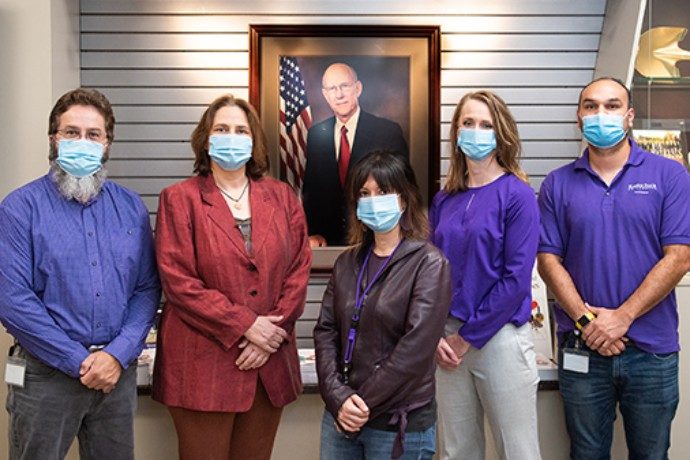MANHATTAN, KAN. – Utilizing state and federal grants totaling $1.33 million, a team of researchers from Kansas State University (KSU) are studying how to prevent and control outbreaks and the spread of the coronavirus (COVID-19) at meat and poultry processing plants and the communities where they operate. “Translating SARS-CoV-2 Research into Practical Solutions for The Meat and Poultry Processing Industry,” will involve researchers from KSU’s College of Veterinary Medicine and College of Agriculture as well as faculty from the university’s Food Science Institute. Representatives from the University of Georgia poultry science department will provide insight to apply the findings to poultry processing facilities and lead industry outreach as part of the grants.
Based on input from an advisory board representing the meat and poultry industry’s biggest companies, including Cargill, Hormel Foods Corp., Smithfield Foods, National Beef Packing Co., JBS USA, Wayne Farms, Tyson Foods Inc. and Costco Wholesale, the project will assess the effectiveness of cleaning and sanitizing supplies used to deep clean plants and deactivate SARS-CoV-2. It will also investigate why outbreaks were prevalent at many meat and poultry plants this year, causing many facilities to slow production or temporarily close.
“This has put a major strain on food production, limiting the amount of meat and poultry on grocery store shelves and disrupting food and feed supply chains across the globe,” said A. Sally Davis, an assistant professor of experimental pathology in KSU’s College of Veterinary Medicine and project director of the K-State grant. “Research is necessary to understand why SARS-CoV-2 is such a problem in meat and poultry processing environments and how we can mitigate the problem.”
Funding for the project included a $1 million grant from the US Department of Agriculture. Additionally, a $330,000 grant from the state of Kansas’ National Bio and Agro-Defense Facility Transition Fund, earmarked for research at KSU’s Biosecurity Research Institute (BRI), a high-containment research facility.
The research will examine possible sources of the virus and ascertain how much and for how long the virus exists during and after meat processing operations occur.
Additionally, “The team seeks to identify, develop, validate and deliver practical cleaning and disinfection strategies, plus develop mathematical models to predict and reduce the risk of SARS-CoV-2 exposure in meat and poultry processing facilities,” according to KSU.
Bonnie Rush, dean of KSU’s College of Veterinary Medicine, said the university is known as the “Silicon Valley of biodefense,” and is well equipped for this type of research.
“It combines our expertise in the study of viruses, our high-containment research facility in the BRI and our national experts in food safety,” Rush said.
The team plans to work closely with the advisory board to receive feedback and input during the research process and communicate findings to the industry immediately to ensure rapid implementation based on the research.


